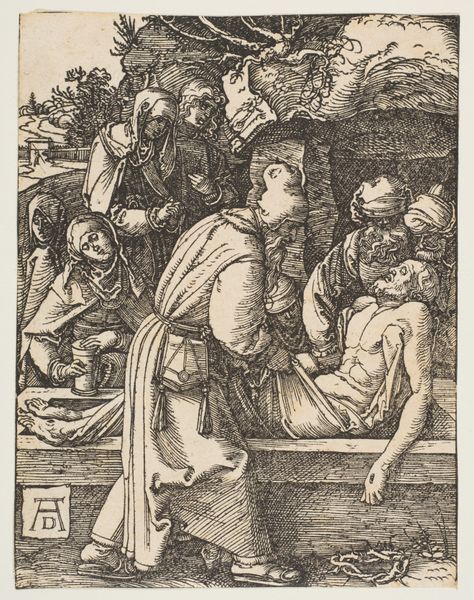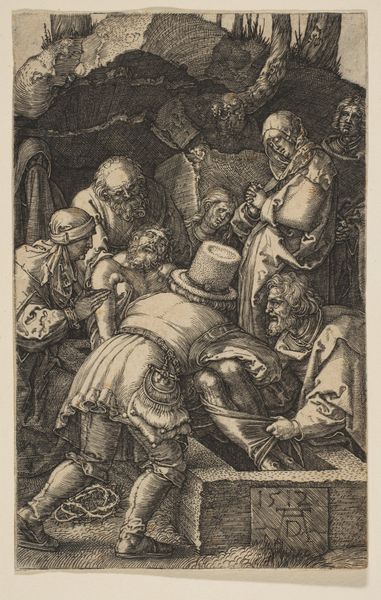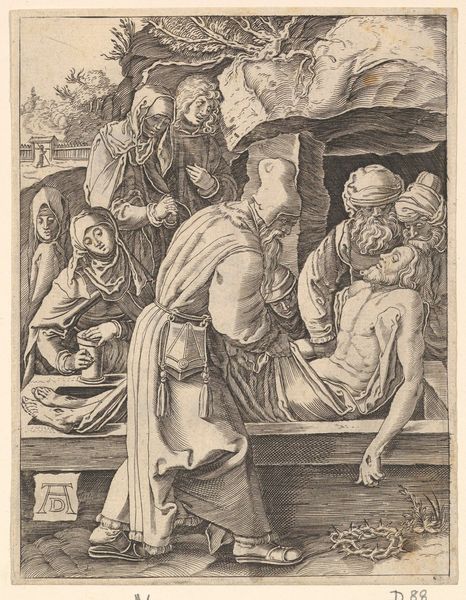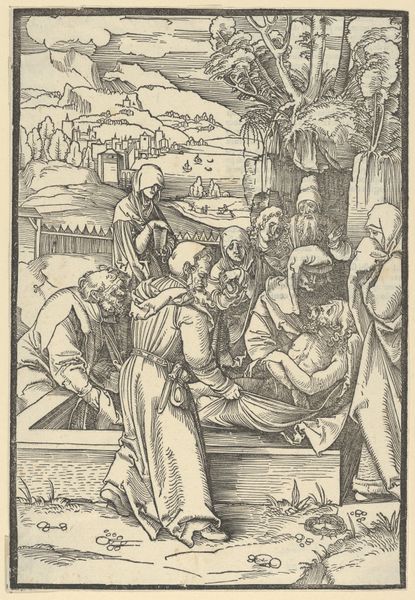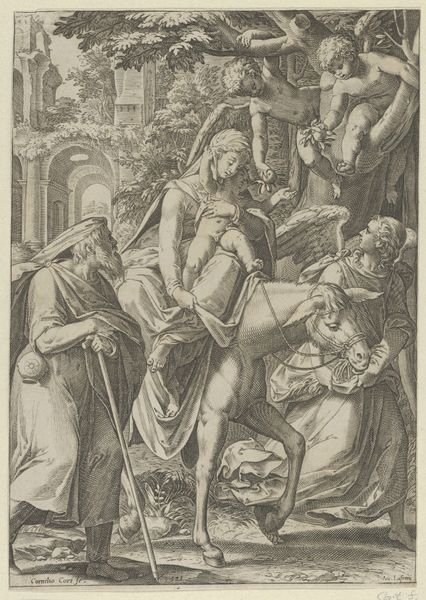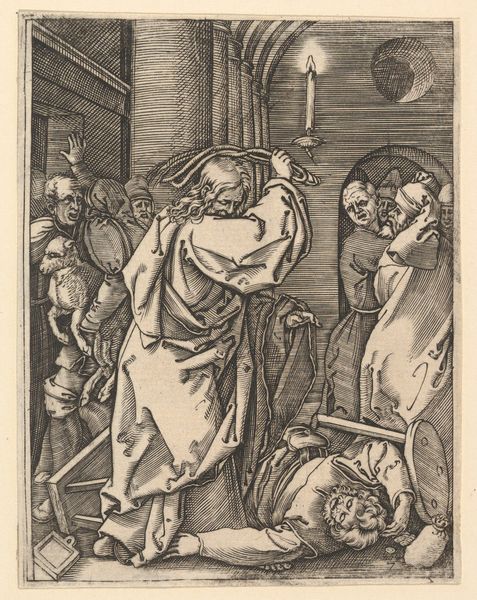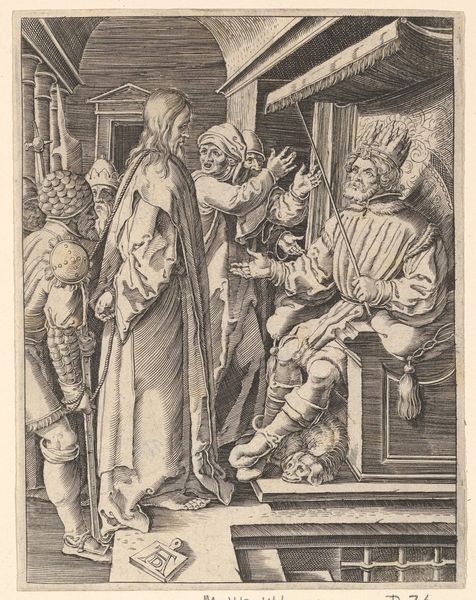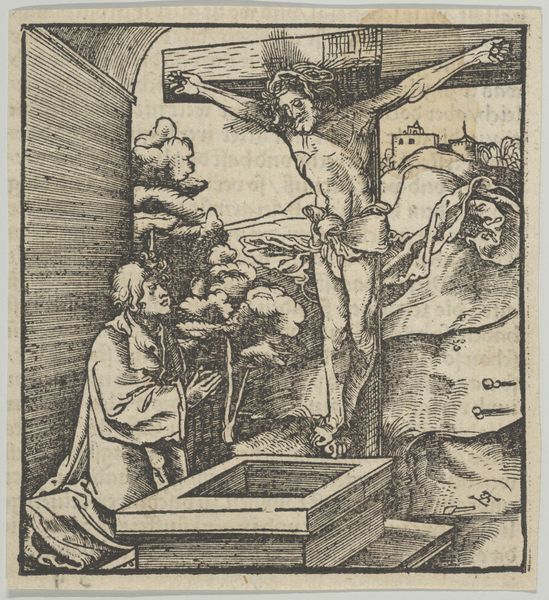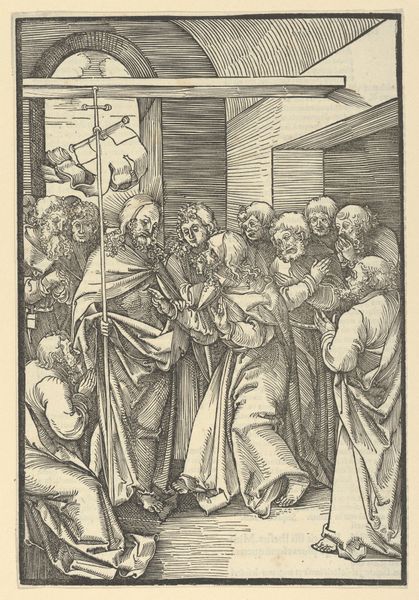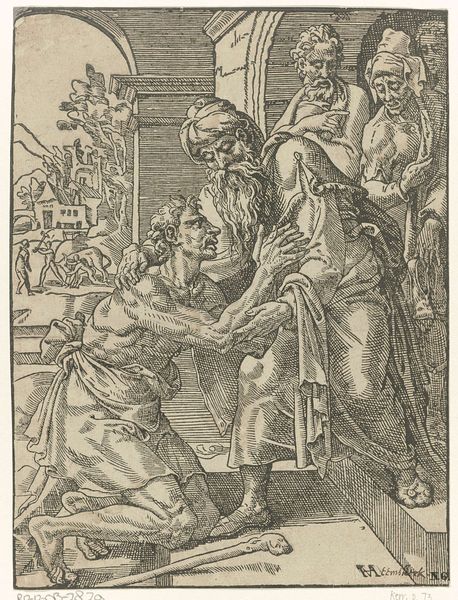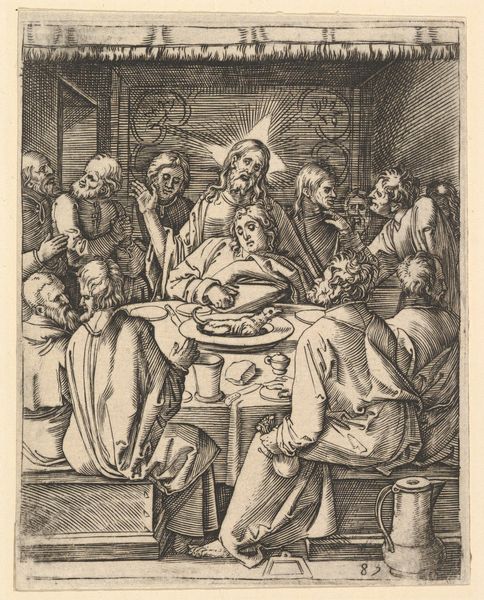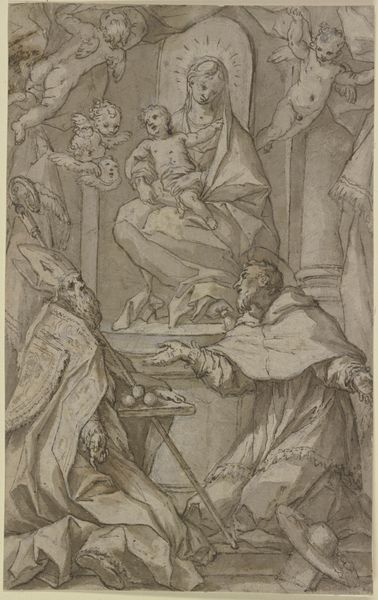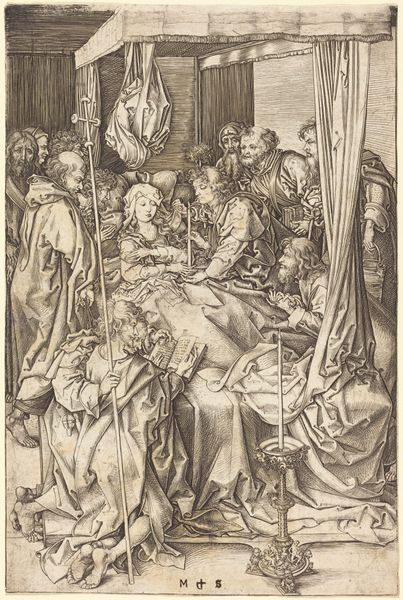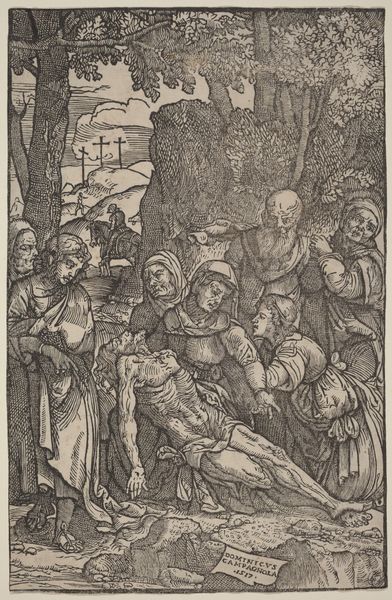
The Deposition, from The Small Passion (copy) 1485 - 1528
0:00
0:00
drawing, print, ink, woodcut
#
drawing
#
narrative-art
# print
#
figuration
#
ink
#
woodcut
#
history-painting
#
northern-renaissance
Dimensions: plate: 1 15/16 x 1 9/16 in. (5 x 4 cm)
Copyright: Public Domain
Curator: Dürer’s “The Deposition,” a woodcut from his Small Passion series, printed between 1485 and 1528… Consider the labor invested in this small piece. Editor: It feels so raw and emotional. The way the figures cluster around Christ's body, there's a tangible sense of grief. What particularly stands out to you about it? Curator: I see a powerful statement about the materials and the process of its creation. Dürer, a craftsman and artist, democratized art by making it accessible through print. Think about the social implications: How did making religious scenes available to a wider audience through this relatively inexpensive medium impact the church's authority and devotional practices? Editor: That’s interesting. It does shift the power dynamic, doesn't it? I hadn't really considered how the accessibility of the image due to it being a print would allow so many more people access to devotional imagery. Were these prints widely available? Curator: Precisely. They were more easily and cheaply reproduced than paintings, allowing a broader audience to contemplate these religious subjects. And the woodcut itself…it's a physical, almost brutal process. The artist carving into the wood, removing material to create the image…it mirrors the taking away of Christ from the cross, a visual analogy perhaps? The materiality is critical to its meaning. Editor: I see what you mean. It makes me think about the role of the craftsman versus the artist at that time, and how Dürer was straddling those worlds. The medium informs the message, doesn’t it? I definitely have a new perspective on the piece now, thinking about the material implications. Curator: Exactly! Considering art through the lens of its production – its materials, its social context – opens up entirely new avenues for understanding its power and impact.
Comments
No comments
Be the first to comment and join the conversation on the ultimate creative platform.
